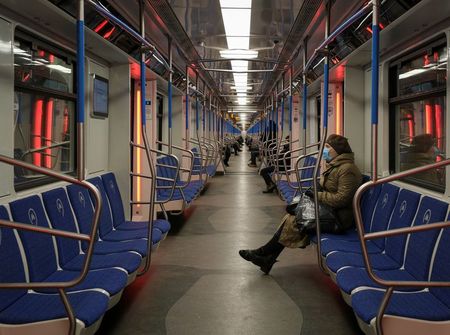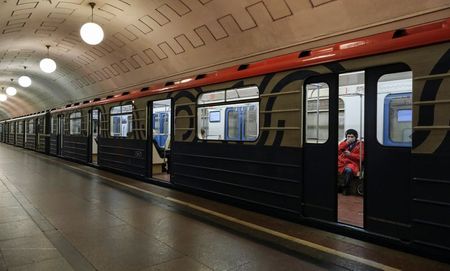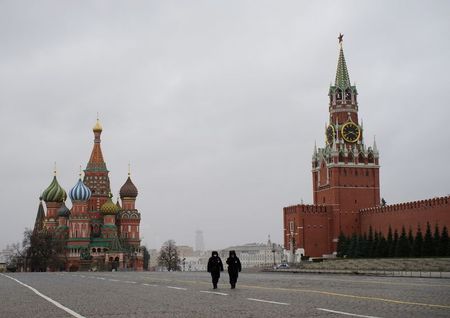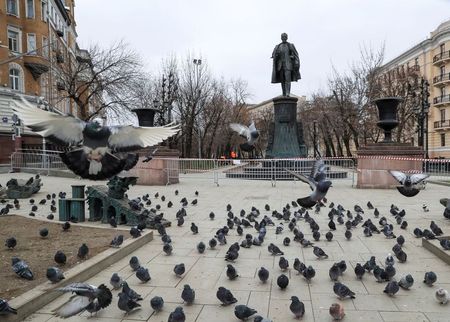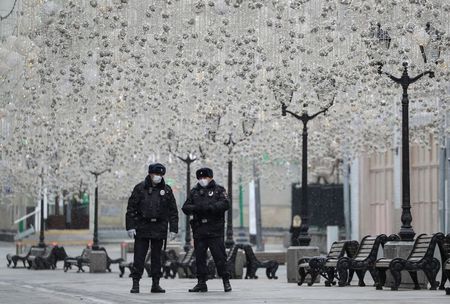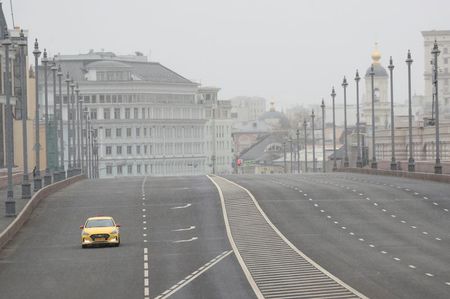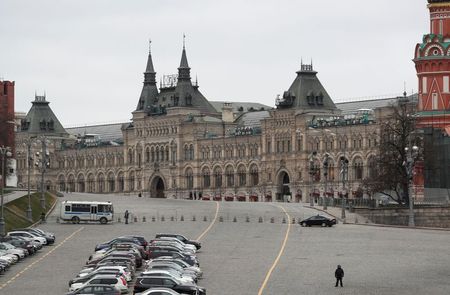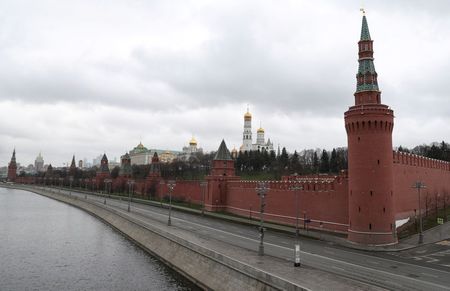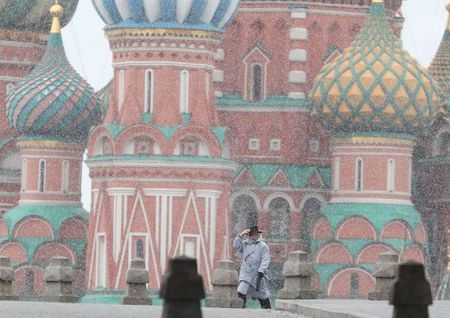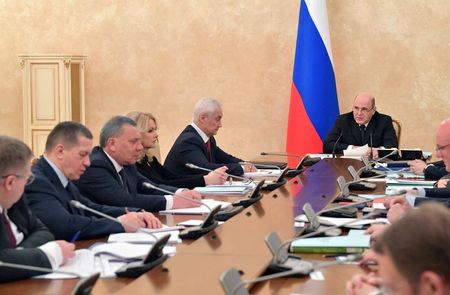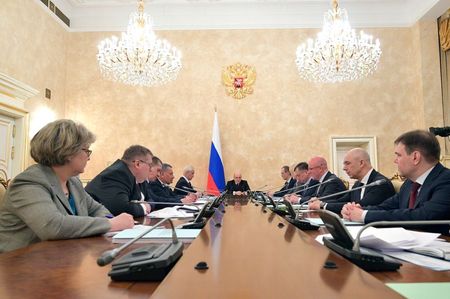By Maxim Rodionov and Tom Balmforth
MOSCOW (Reuters) – More than a dozen Russian regions including the city of St Petersburg introduced a partial lockdown on Monday after Russia recorded its biggest one-day rise in coronavirus cases for the sixth day in a row.
Prime Minister Mikhail Mishustin had told Russia’s more than 80 regions to consider ordering people to stay at home after the official tally of coronavirus cases rose by 302 to 1,836. Nine people have died, authorities say.
Moscow’s authorities have already ordered residents to stay at home, and Mishustin said he thought the measures now needed to be rolled out nationwide.
“I ask the leaders of (Russia’s regions) to pay attention to (Moscow’s) experience and to work out the possibility of introducing such measures in their regions,” he said.
President Vladimir Putin said decisive measures had helped Russia win time in its battle to contain the virus and to prevent an explosive infection rate, but that it was vital authorities used that time effectively.
“This work must be done in reality, I would like to underline this – in reality and not just on paper or for reports. No exceptions whatsoever,” Putin told regional heads in comments broadcast on state television.
At least 14 regions, including Kaliningrad, Tatarstan and the Arctic region of Murmansk, which shares a border with Finland and Norway, heeded the call. Others have implemented different measures.
The southern, mainly Muslim region of Chechnya has imposed an entry ban, while several towns run by state nuclear corporation Rosatom that are closed to foreigners have imposed further entry restrictions.
Murmansk region has restricted entry to the towns of Kirovsk and Apatity where fertiliser producer Phosagro has plants and to other, small industrial settlements. The northern region of Karelia has prohibited the elderly from using public transport.
Moscow Mayor Sergei Sobyanin, a Putin ally, said 20% of residents were ignoring his order to self-isolate, but that he hoped an IT system would be operational by the end of the week that would allow authorities to control the movement of people.
Under the new rules, Muscovites are allowed to go out only to buy food or medicines at their nearest shop, get urgent medical treatment, walk the dog, or take out the bins.
“This may now seem to some of you like some kind of game, a kind of Hollywood thriller. This is no game…,” Dmitry Medvedev, deputy chairman of the Security Council, said in a video address.
“Unfortunately, what is happening now is a real threat to all of us and to all of human civilisation,” said Medvedev, a former president who was prime minister until earlier this year.
Some doctors have voiced scepticism about the accuracy of Russia’s coronavirus figures given what they say has been the patchy nature and quality of testing, allegations that the authorities deny.
(Additional reporting by Anastasiya Lyrchikova and Polina Ivanova, Editing by Timothy Heritage and Ken Ferris)


